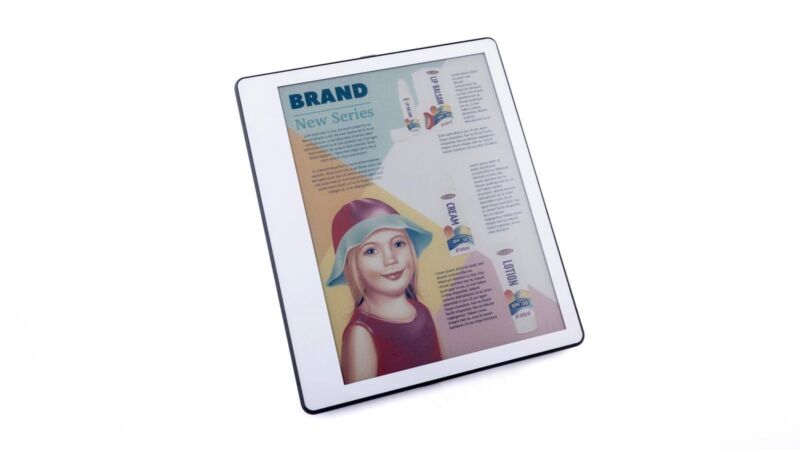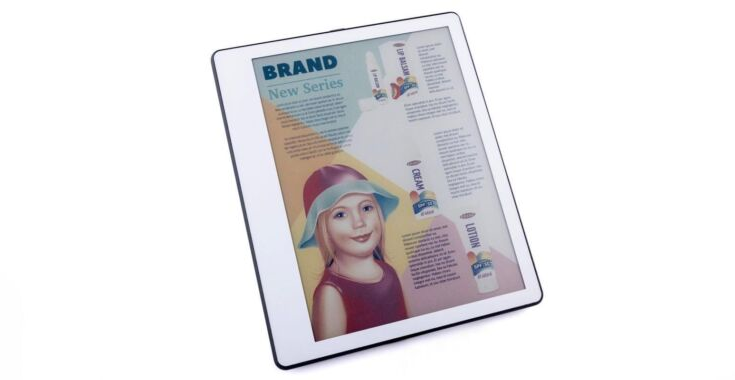
E Ink
E-readers like Amazon’s Kindle Paperwhite have great battery life and are easy on the eyes, but they still have one big shortcoming: They’re only capable of black-and-white output. The E Ink Corporation, the company behind the screen tech that powers most e-readers, offers color products, but most of them have suffered from odd color casts, long refresh times, and low pixel density.
That could change with the introduction of Gallery 3, a new color E Ink display technology that promises better color reproduction and dramatically faster page refresh times than its predecessor. The first E Ink Gallery display took two seconds to refresh a page of black-and-white content and 10 seconds to refresh a color page—that’s acceptable if you’re using it for signage, but it’s an eternity if you’re trying to read a magazine or graphic novel. Gallery 3 promises refresh times of just 0.5 seconds in its fastest low-quality color mode or 1.5 seconds in its high-quality color mode.
Gallery 3’s 300 PPI pixel density is also comparable to current black-and-white e-reader screens, and both text and images will appear visibly sharper than they did on previous-generation 150 PPI screens. Black-and-white content can refresh in just 0.35 seconds, and the screens also support pen input for e-readers that let you mark up PDFs and other documents.
One benefit of Gallery’s “Advanced Color ePaper” (ACeP) technology compared to color screen technology like E Ink’s Kaleido is that it doesn’t use a color filter array to display color, eliminating the odd color cast you can see on Kaleido-based displays. Instead, each display pixel can use a combination of cyan, magenta, yellow, and white e-ink to display different colors.
While color e-readers currently exist, black-and-white e-readers are still overwhelmingly more popular, especially within the most popular e-reader ecosystems (Amazon’s Kindle, Barnes and Noble’s Nook, and Rakuten’s Kobo). The few color e-readers that exist, like the PocketBook Color, tend to be significantly more expensive than even the priciest black-and-white readers.
Apart from their sharpness and faster refresh rates, E Ink’s demo videos also showed off foldable and curved versions of Gallery 3 displays. E Ink sells an $800 13.3-inch ACeP test kit for manufacturers, but we’ll need to wait for e-reader manufacturers to announce new products before we know if (or when) we’ll see Gallery 3 in consumer devices.
Ars Technica may earn compensation for sales from links on this post through affiliate programs.



